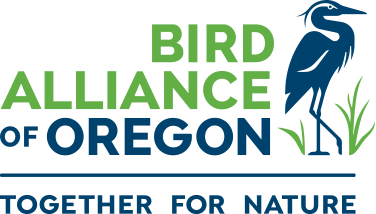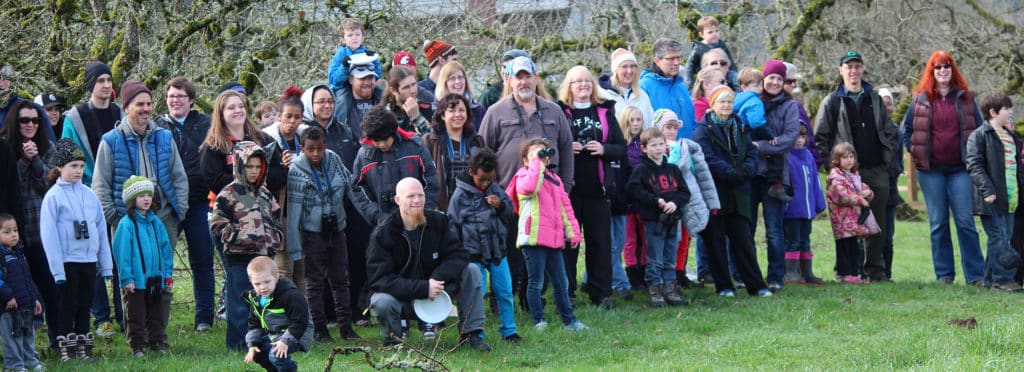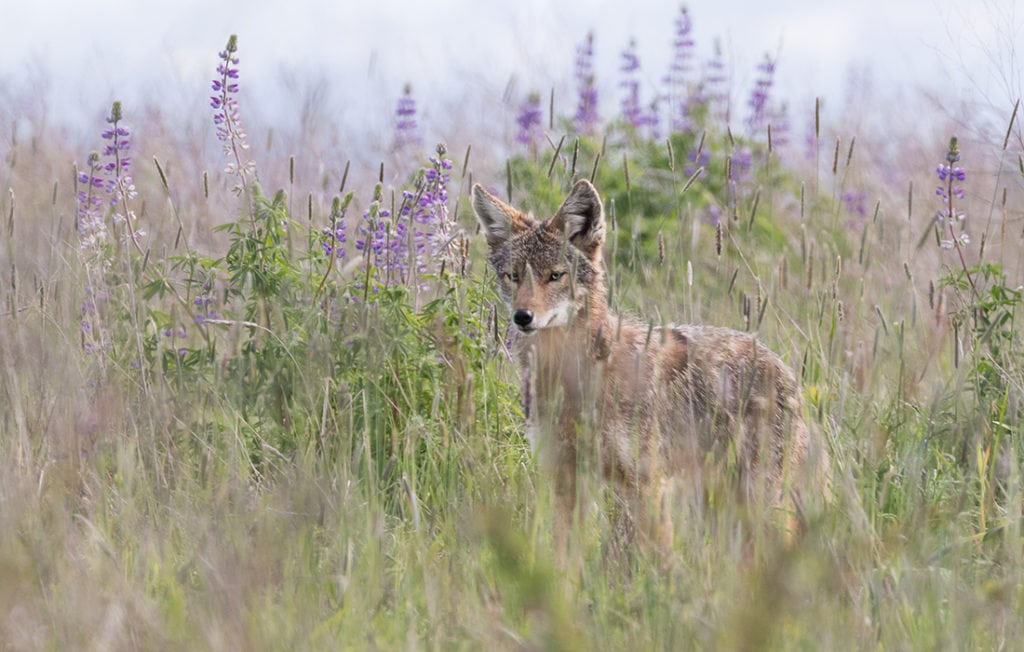
It was classic Harry, speaking to both his inimitable history and his trademark style. Harry was involved with the organization in one way or another for 64 years, amassing volunteer hours that would take most people three lifetimes. And for the many voices who have remembered him over the last few weeks since his passing, that sense of humility was as central to who Harry was as his endless service to the birding community.
His contributions to Bird Alliance of Oregon were enormous, including writing the Sightings and Field Notes columns in the Warbler for decades, and serving as board president, editor of the Warbler, and volunteer manager, as well as being a trip leader and class instructor.
Amazingly, he was just as active outside of Bird Alliance of Oregon. He served as secretary of the Oregon Birds Records Committee, was the Pacific Northwest Coast regional editor for North American Birds, became the first state coordinator for the USFWS Breeding Bird Survey, and was central to the Portland Christmas Bird Count. On top of these contributions, he authored three books, including the perennially popular Birds of the Willamette Valley Region, and was a major contributing writer and editor to Birds of Oregon: A General Reference, the seminal work regarding birds in Oregon.

“Harry was eBird before eBird,” says Dave Irons, longtime birding friend of Harry’s and expert on Oregon birds in his own right. “He was the one person who was the central figure in every report of a rare bird in Oregon for decades and decades.” This apt analogy points to why there will never be another Harry Nehls—these days, rare bird information is entered into a website and immediately distributed to all who want it.
But until 2008, the year eBird started, that was Harry’s job. To help with that task, he created a system of index cards, arranged taxonomically, that recorded the notable observations shared with him. At a recent Birder’s Night, those index cards were on public display for the first time, and birders across generations were in awe of both the number of significant sightings and the amount of work that had gone into creating and maintaining what was a brilliant system for the pre-digital era of such record collecting.
Harry was known for more than just recording rare birds, of course—he also found quite a few. Over his birding career, Harry found Oregon’s first-record Ross’s Gull, McKay’s Bunting, Stilt Sandpiper, Blue-headed Vireo, Swamp Sparrow, Mountain Plover, Tennessee Warbler, and Steller’s and King Eiders. Most birders would be ecstatic to have one state record under their belt.
When eulogizing someone who gave so much to the birding community, we instinctively want to list all their achievements, but that doesn’t tell Harry’s whole story. Jeff Gilligan, who has been birding in Oregon since the 1950s, remembers Harry as someone who went out of his way to mentor young birders. “I guess I was probably in eighth grade when I started birding with Harry. He would pick me and some friends up and take us to the coast…That was a big deal for young birders. He always had a big smile, and was such a great mentor to us.”

Those who would phone Harry with their sightings of rare birds fondly remember one of his catchphrases when told of a rarity in some other part of the state. “Oh, those guys down there find them all the time,” he would say, as if to insinuate that the bird was perhaps not quite as rare as the finder may have thought. Who were “those guys,” these birders still wonder. Only Harry seemed to know.
Try as he might, however, there is one thing even he wouldn’t be able to talk the birding community out of knowing: you were a rare one, Harry, and we won’t be finding another one like you.



